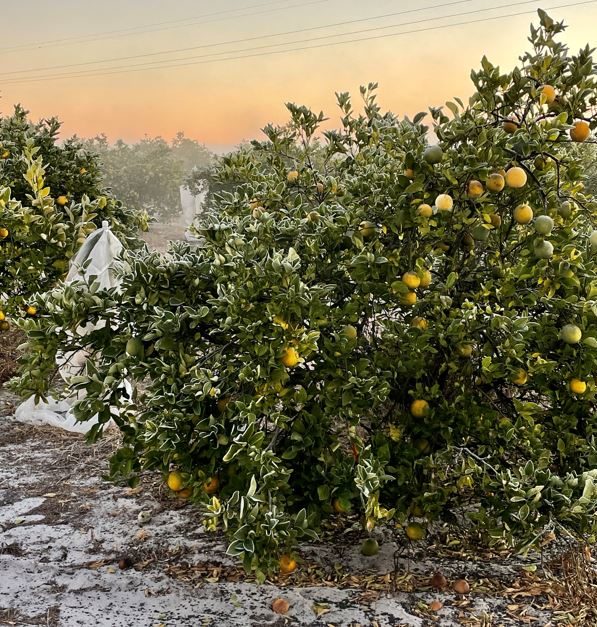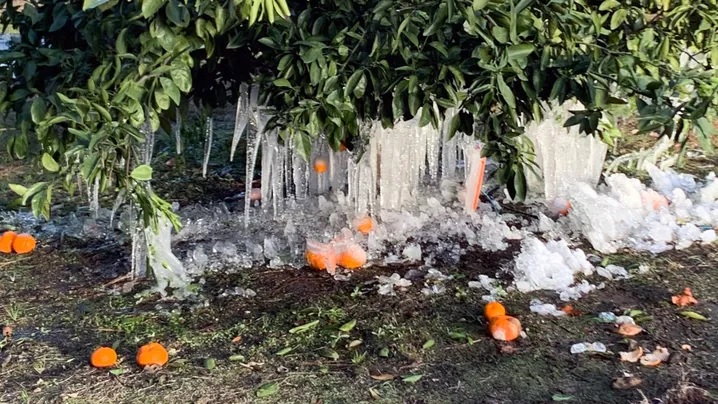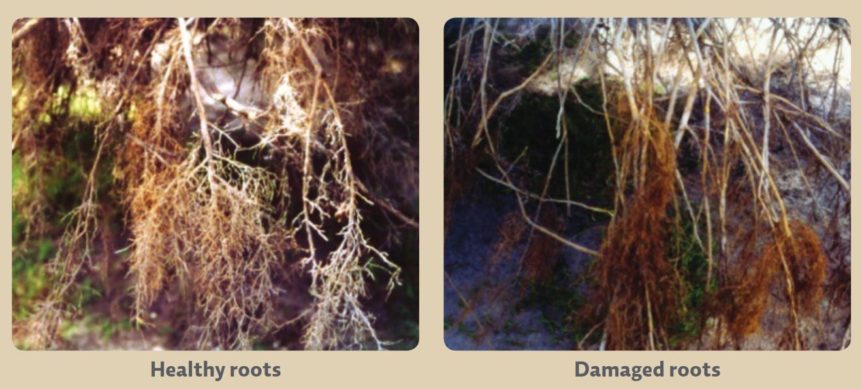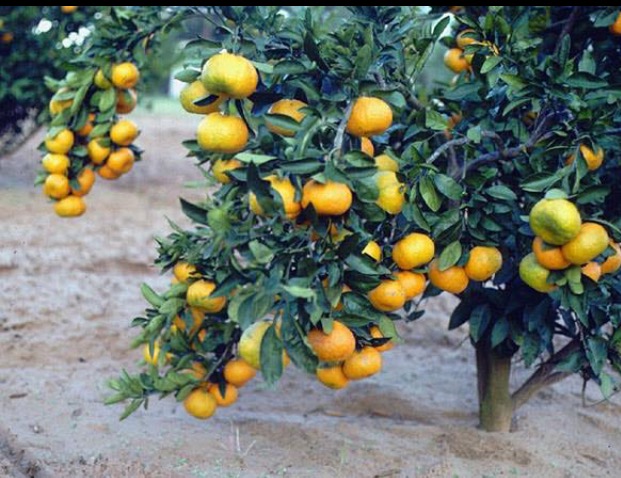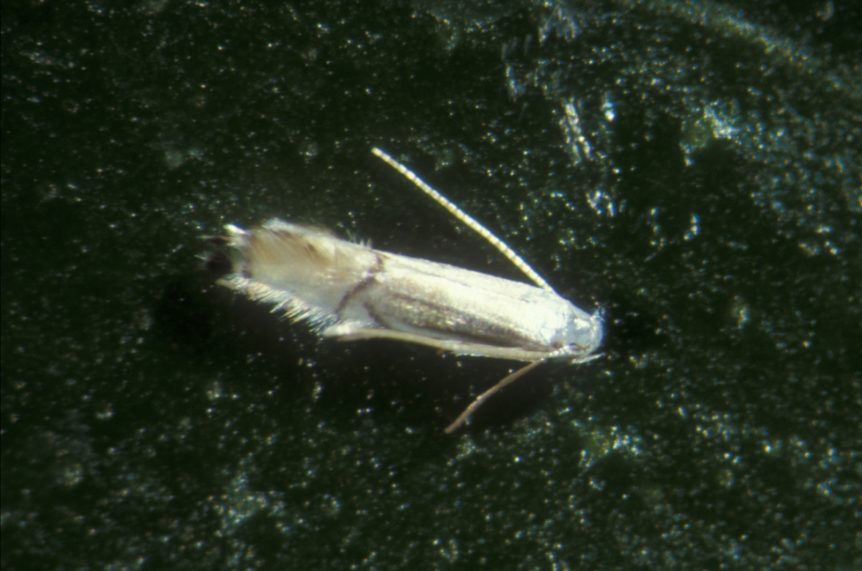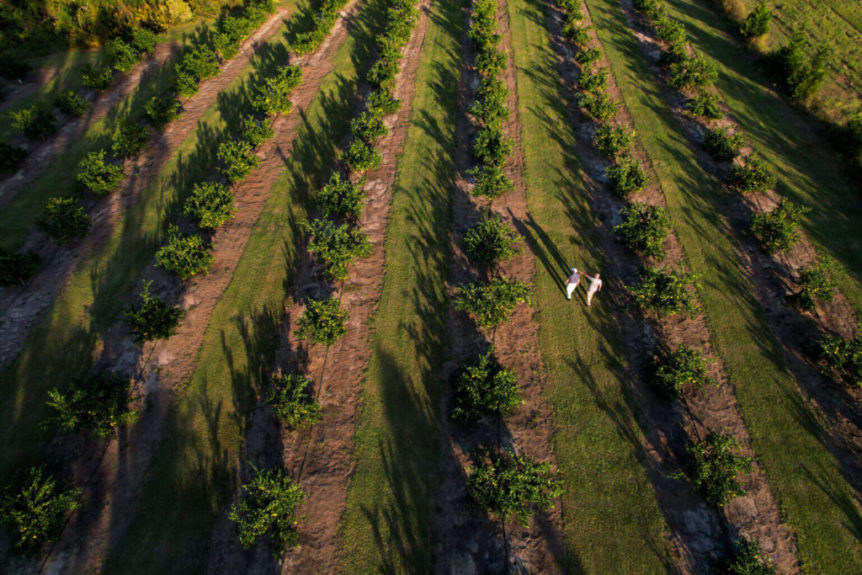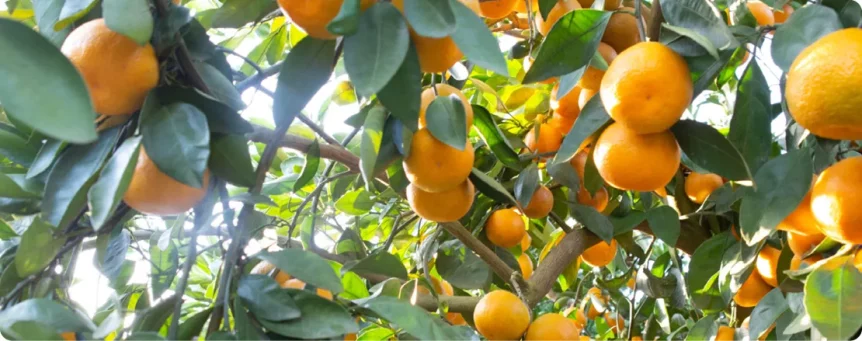Cold-hardy citrus in the Southeast endured sub-freezing temperatures in mid-December, the second major freeze to impact the region this season. Mary Sutton, University of Georgia (UGA) assistant professor and citrus Extension specialist, discussed how this freeze impacted citrus trees and fruit in North Florida, South Georgia and South Alabama. “We’re seeing some damage on younger trees that were probably planted …
Cold-Hardy Citrus Producers Should Prepare for Potential Freeze
Cold-hardy citrus producers need to be prepared for a potential freeze event next week. Mary Sutton, University of Georgia (UGA) assistant professor and citrus Extension specialist, cautioned growers on the UGA Citrus Blog that temperatures are expected to drop in the low 30s across the region next Monday and Tuesday, and perhaps in the upper 20s in some areas. The …
Plant Diagnostic Facilities for Georgia Citrus Growers
The University of Georgia (UGA) has disease labs and clinics to help citrus producers determine what diseases are impacting their trees. Jonathan Oliver, UGA assistant professor and small fruits pathologist, highlights the diagnostic facilities that growers can take advantage of. “We have a lab in Tifton, the Plant Disease Clinic, that can accept samples from commercial citrus,” Oliver said. “We …
Proper Site Selection Essential for Phytophthora Prevention
Vulnerability of citrus trees to phytophthora root rot is a concern for cold-hardy growers. But there are precautions that producers can implement that will guard against infection buildup. One of those precautions includes site selection and not planting trees in poorly drained locations, according to Jonathan Oliver, University of Georgia assistant professor and small fruits pathologist. “Site prep is really …
Impact of Satsuma Shortage in Cold-Hardy Citrus Region
Minimal satsumas this harvest season will impact cold-hardy producers far beyond the loss of production in the region. MAINTENANCE MANDATORY Growers are now tasked with maintaining their groves when there is little to no fruit on the trees. It is a chore that producers should still follow through on, however, says Jake Price, University of Georgia (UGA) area citrus agent. …
Georgia-Based Recommendations for Fertilization
Georgia citrus growers need fertilizer recommendations that are specific to the state’s production. This would allow growers to make better decisions concerning crop management. That is one of the reasons Mary Sutton, University of Georgia (UGA) assistant professor and citrus Extension specialist, was hired in August 2024. She is conducting research that will benefit Georgia growers who need to mostly …
Summer Update Informs Growers on Impactful Issues
The annual Citrus Grower’s Summer Update meeting on Aug. 14 in Valdosta, Georgia, provided cold-hardy growers with updates on several factors impacting the industry. Information on topics ranging from snails to phytophthora to Asian citrus psyllid trapping were presented to growers who are on the cusp of harvesting another season’s crop. Jake Price, University of Georgia (UGA) area citrus agent …
Insect Pests To Watch for in Georgia
Georgia citrus growers are a couple of months away from harvest season. If producers are going to maximize this year’s crop, they need to protect it from insect pests. Apurba Barman, University of Georgia assistant professor of entomology at the Tifton Campus, discussed insect pests during the Southeast Citrus Update in Lyons, Georgia on July 24. He focused on a …
Honeymoon Phase for Georgia Citrus Production
Georgia citrus growers are still in the honeymoon phase of production with regards to disease, said Jonathan Oliver, University of Georgia (UGA) assistant professor and small fruits pathologist. While established groves in Florida have had to deal with disease buildup for decades, disease has yet to be problematic for South Georgia citrus production. But that could be changing. “With respect …
Cold-Hardy Citrus Production: A Learning Process
Production in the cold-hardy citrus region continues to be a learning process for growers. Producers in North Florida, South Georgia and South Alabama are learning this year the price of alternate bearing for their satsuma mandarin crop. After a heavy crop load last season, production is expected to taper off quite a bit this season across the cold-hardy citrus region. …










